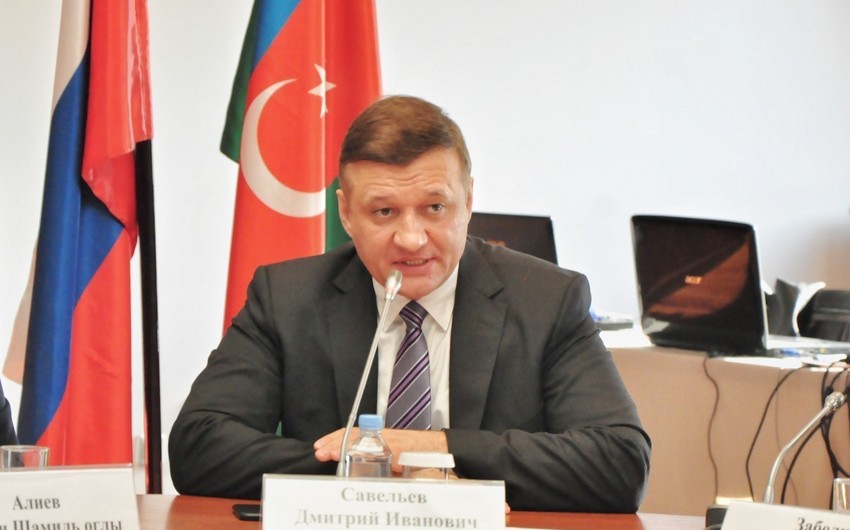Baku. 30 January. REPORT.AZ/ In the interview to Report information agency, head of the Russia-Azerbaijan interparliamentary group, Russian State Duma Deputy Dmitriy Saveliev commented on the results of the Davos informal meeting between Azerbaijani President and Armenian Premier Nikol Pashinyan and spoke about the advantages of the conflict settlement for Armenia.
- Good day, Dmitriy Ivanovich. Davos has recently played host to the informal meeting of President of Azerbaijan Ilham Aliyev and Prime Minister of Armenia Nikol Pashinyan. What did it show to the world?
- It is no accident that the World Economic Forum organizers included the meeting between the two leaders to the list of forum highlights since Aliyev and Pashiyan could communicate informally and express their positions stances on the Karabakh issue. I am sure that, as an experienced diplomat, Ilham Aliyev could demonstrate to Pashinyan the advantages that Armenia will have from the Karabakh conflict settlement. The list of advantages is not short, since the Armenian economy is currently in a stalemate, especially for the reason of the trade blocade of the country's two longest borders by Azerbaijan and Turkey. If this blocade is lifted, Armenia would get not only a free access to the European markets, but also a chance to become a transit territory for laying the oil and gas pipelines, which is very important for the country whose industry faces a strong need for energy sources. Azerbaijan again shows to the Armenian side its readiness for a productive dialogue and reasonable compromises. I would like to hope that there are politicians in Armenia who are aware of the reality and will be ready to move gradually towards peace. On the other hand, the Armenian public is yet not ready for serious compromises in relation to the problem of Nagorno-Karabakh and this may hinder the negotiation process. In such a situation Nikol Pashinyan is facing an uneasy choice between the need to take real steps and the fear to cause public uproar inside this country. In any case, it is further impossible and risky to imitate talks like the previous Armenian leadership did and to continue balancing on the verge of the armed conflict.
- Do you think the meeting between the leaders of Azerbaijan and Armenia marks the start of the real resolution of Nagorno-Karabakh conflict?
- I think that the results of the meeting between Ilham Aliyev and Nikol Pashinyan which lasted for an hour and a half will promote a more productive negotiation process in February, at the official meeting of the Foreign Ministers of Azerbaijan and Armenia, a third in a row over the past months. Such intensive meetings give a ground to suppose that Baku and Yerevan are really oriented on reducing tensions in relations, since Azerbaijan has recently made in clear that it has no interest in 'a meeting just for meeting' and that Azerbaijani diplomats are ready to take part in talks only provided that they are intended for an ultimate result. It is not ruled out that the hours-long meetings of officials (the talks between the Foreign Ministers of Azerbaijan and Armenia in Paris continued for four hours) are indirect signs of already existing concrete options of the peaceful resolution of Nagorno-Karabakh conflict which the parties are actively discussing. This raises hopes that Azerbaijan and Armenia will manage to agree and the next stage of the negotiation process will prove even more productive. If the real agreement on Nagorno-Karabakh is reached, the Turkish parliament will finally ratify the 2009 Zurich documents, which will lead to restoration of the diplomat relations with Armenia, opening of borders and long-awaited peace in the South Caucasus.
- What concessions should both countries make to achieve peace?
- Baku has long voiced its stance on the model of the conflict settlement and this position has remained unchanged for many years envisaging the end to occupation of the country's seven regions surrounding Nagorno Karabakh and return of Azerbaijani refugees to their lands. Ilham Aliyev is ready to grant large autonomy to Nagorno-Karabakh solely in the framework of the territorial integrity of Azerbaijan. I think it is a fair compromise which Azerbaijan is ready to make, and Foreign Minister of Azerbaijan announced his readiness to ensure security and right to self-government to the Armenians of Nagorno Karabakh. This is a serious gesture. It is now the Armenian govertnment's turn to make response, an opportunity to demonstrae a political will and use the historic chance. We will see it soon whether Yerevan will succeed in this issue.


 https://static.report.az/photo/4da01d50-0a3c-4a85-994c-0c012b3b110f.jpg
https://static.report.az/photo/4da01d50-0a3c-4a85-994c-0c012b3b110f.jpg

